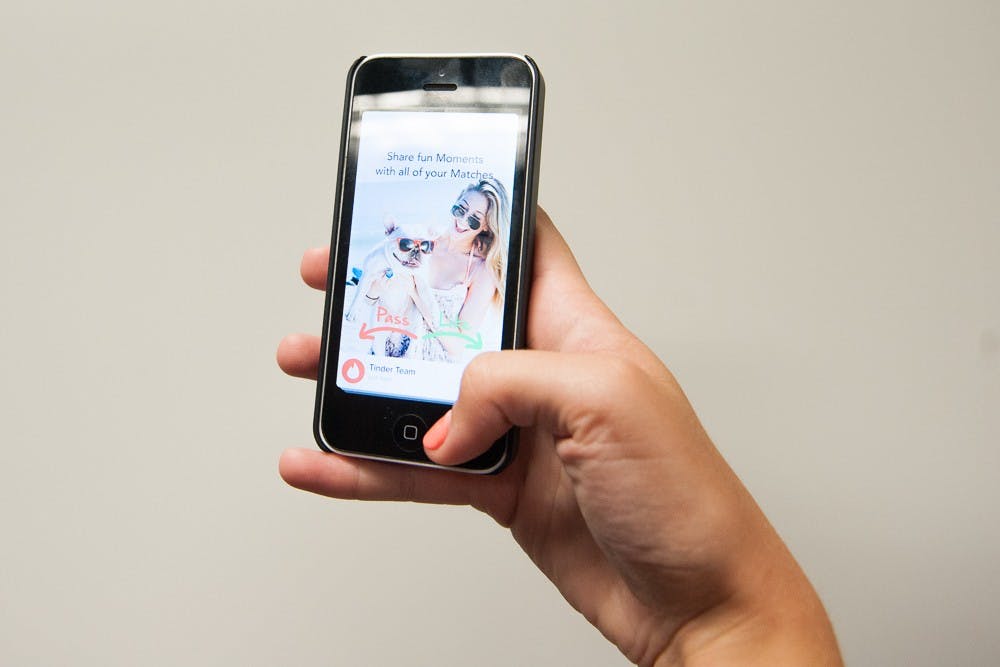Right swipe, right swipe, left swipe, up swipe. Tinder was not the first app to employ the right swipe equals “like” and left swipe equals “dislike” dynamic. It certainly made the swipe famous though.
Just recently, Tinder launched a new feature: the up swipe. Swiping up is now known as a Super Like that alerts the other person of your eagerness to match with them.
Previously, to see if someone was interested, there needed to be a mutual like between two users. With the introduction of the Super Like, you can let someone know that you like him or her before they match with you. In doing so, you also are remedying the problem of like devaluation. The twist is that you get one super like per day and they don’t rollover day to day. With this new addition, Tinder aims to alter the way that users interact with their app.
“I’ve always said that a match on Tinder is a lot like meeting eyes across the room — Super Like is more like going up to someone and saying ‘hello,'” Sean Rad, CEO and cofounder of Tinder, told TechCrunch.
Taking the Super Like at face value, it can be seen as a way to initiate more matches and more in person meet-ups. We are more likely to match with someone that we already know likes us, and meeting up could be easier since the level of interest has already been revealed. But is there a more complex motive behind the introduction of the Super Like?
This is the second large-scale measure that Tinder has taken this year to change the way users interact with the app. This spring, Tinder limited the number of right swipes users have per day, when they rolled out a premium version (which costs $9.99 per month for users under 30 and $19.99 per month for users over 30) that comes with unlimited swipes.
The launch of Tinder Plus and Super Like are as much corrective measures as they are cool new features.
When I was a senior in high school (pre-Tinder Plus), only one of my close friends had a Tinder profile. This piqued my interest. Especially peculiar was that he would indiscriminately swipe right on every person that came up. I found this odd. “Why would you right swipe someone who you have no interest in even talking to?” I asked. He explained that this was the most efficient way of using Tinder. Match with as many people as possible, then weed out the profiles you’re not interested in after the fact.
My friend was ahead of his time, because a growing number of users began employing this methodology. In doing so, the value of likes decreased.
In an economy where right swipes are a valuable currency, an over abundance leads to what I like to call “swipeflation.” It’s a result of disingenuous swipes that the overall value of a swipe diminishes. For swipeflation to continue to rise would be catastrophic for Tinder. Unlike other social media platforms where an increase in likes and favorites are welcomed with open arms, Tinder offers the possibility of real life dates and real life meet ups. So, for people to be flooded with matches, or to match with everyone would render the app useless.
By limiting the number of swipes people have available per day, Tinder was able to curb this habit. You don’t want to just right swipe everyone, because you could be missing the people you are actually interested in. Tinder Plus users, however, still have the opportunity to game-ify the app and swipe right on everyone.
Enter Super Like. Not only does the up swipe offer better chances of meeting up with someone special, it forces you to evaluate each profile more than you had previously. You only have one per day, so you can’t afford to waste it on just anyone. You’re only going to use it on the one.
That is the economic genius in the Super Like. It presents new opportunities for more meaningful connections. It corrects swipeflation. And it could entice the casual user to open the app daily to prevent their single up swipe going to waste.
Editor’s note: The opinions presented in this column are the author’s and do not imply any endorsement from The State Press or its editors.
Want to join the conversation? Send an email to opiniondesk.statepress@gmail.com. Keep letters under 300 words and be sure to include your university affiliation. Anonymity will not be granted.
Related Links:
True love is a right swipe away on Tinder at ASU
Do dating apps 'match up' to the hype?
Reach the columnist at benjamin.king.az@gmail.com or follow @benkingaz on Twitter.
Like The State Press on Facebook and follow @statepress on Twitter.




